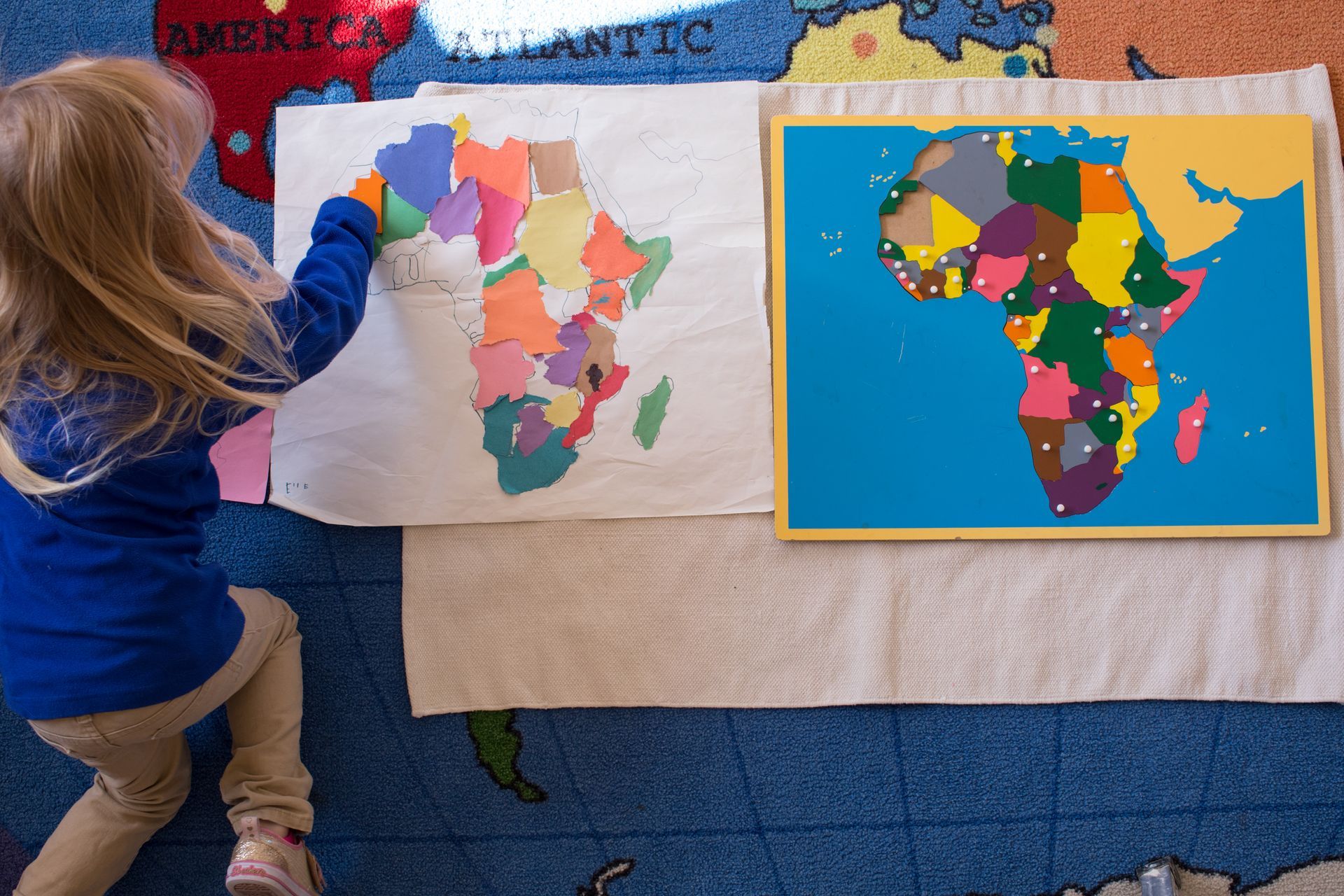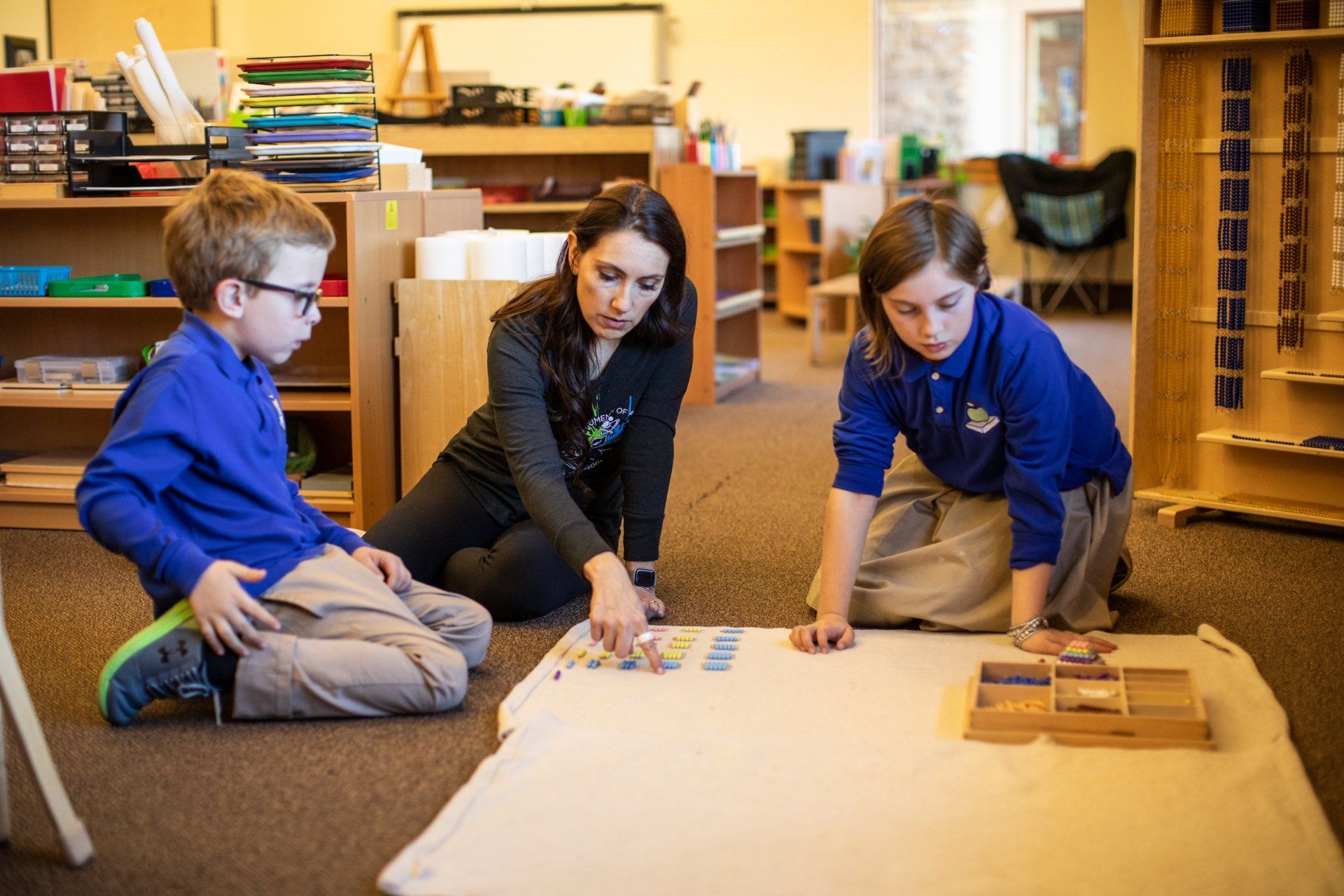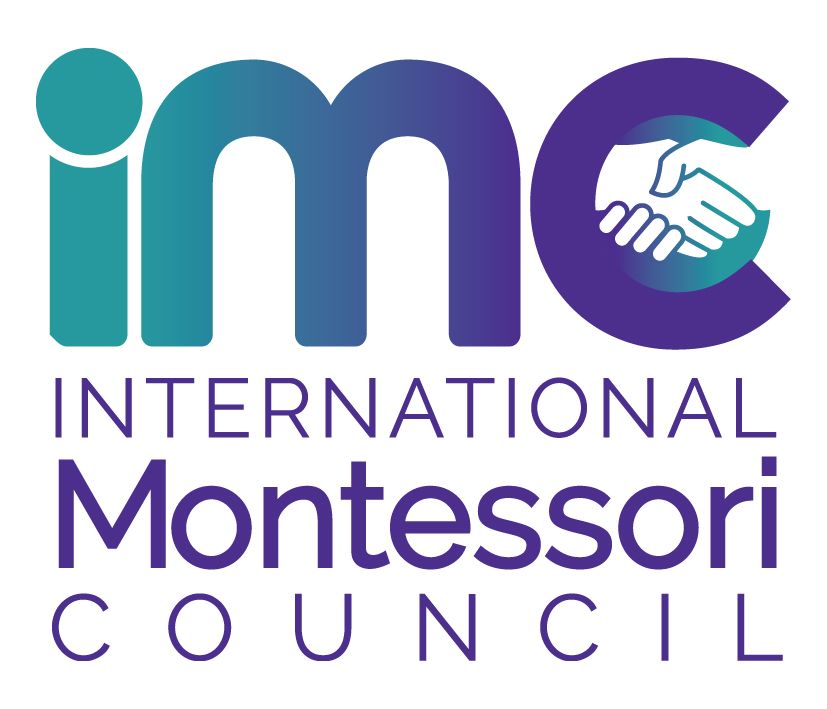
The capstone year: How everything culminates to prepare your child for the elementary years and beyond
The Montessori philosophy is built on a three-year cycle where children of mixed ages work and learn together, with each year playing a unique and vital role in their development. The kindergarten year, the final year in this cycle, is when everything your child has been working on comes together. It is a time when they solidify the foundational skills they have been building in areas such as literacy, math, and practical life, and when their natural curiosity and love of learning truly blossom.
After investing in a Montessori education thus far, it is well worth having your child stay for that third year to fully reap the benefits of your investment.
Here are just a few key reasons why the kindergarten year is essential:
Leadership and Confidence:
In kindergarten, your child moves from being one of the younger members of the class to a leader. This shift provides invaluable opportunities to mentor younger students, reinforcing their knowledge and building leadership skills. They grow in confidence, knowing they are role models in the classroom, and they are eager to take part in specials classes (Spanish, Music, Physical Education, Art, and Library).
Mastery of Skills:
The Montessori curriculum is designed to allow children to revisit concepts at increasingly complex levels over the three-year cycle. By the kindergarten year, children are approaching mastery of these concepts. Their problem-solving abilities, reading comprehension, and mathematical thinking deepen significantly as they apply what they have learned in more abstract and complex ways. Continuing to work with hands-on Montessori materials provides opportunities for reinforcement, leading children to internalize these concrete experiences, shifting further towards abstract thinking. Leaving too soon doesn’t allow that internalization to occur, and some of those early learning experiences can simply fade away.
Independence and Responsibility: During this final year, your child will have the opportunity to become more independent and take on greater responsibility. This fosters academic success and personal growth, preparing them for the transition to elementary school and beyond.
A Deeper Understanding: Montessori children are given the gift of time. The multi-age environment allows them to explore subjects at their own pace, with the kindergarten year providing the time and space to develop a deep understanding of concepts they have been working with since the beginning of the cycle. This depth of learning is what sets Montessori education apart.
Social and Emotional Growth:
In addition to academic growth, the kindergarten year is a critical time for social and emotional development. As the oldest children in the classroom, they develop stronger empathy, conflict resolution skills, and the ability to collaborate effectively with peers of all ages. The Montessori approach intentionally takes into account children’s cognitive, neurological, and emotional development.
Global Citizenship:
In Montessori, geography is part of the broader concept of Cosmic Education, which emphasizes the interdependence of all things. Younger students begin to gain an understanding of other cultures through the exploration of artifacts, landmarks, animals, flags, foods, and housing. Through hands-on materials, kindergarten students further their study of maps from continents to learn the names of countries along with the study of land and water forms. They begin to learn physical geography (mountains, rivers, oceans, deserts, and climate zones) leading to an exploration of how people live and an appreciation for diversity. Through their studies, students also learn how to care for our world and all of its inhabitants.
The kindergarten year serves as the culmination of students’ work, preparing them not just for the next step in their education, but for life beyond the classroom. Your commitment to seeing your child through the entire Montessori cycle will provide them with an incredible foundation for their future academic, social, and personal success.




